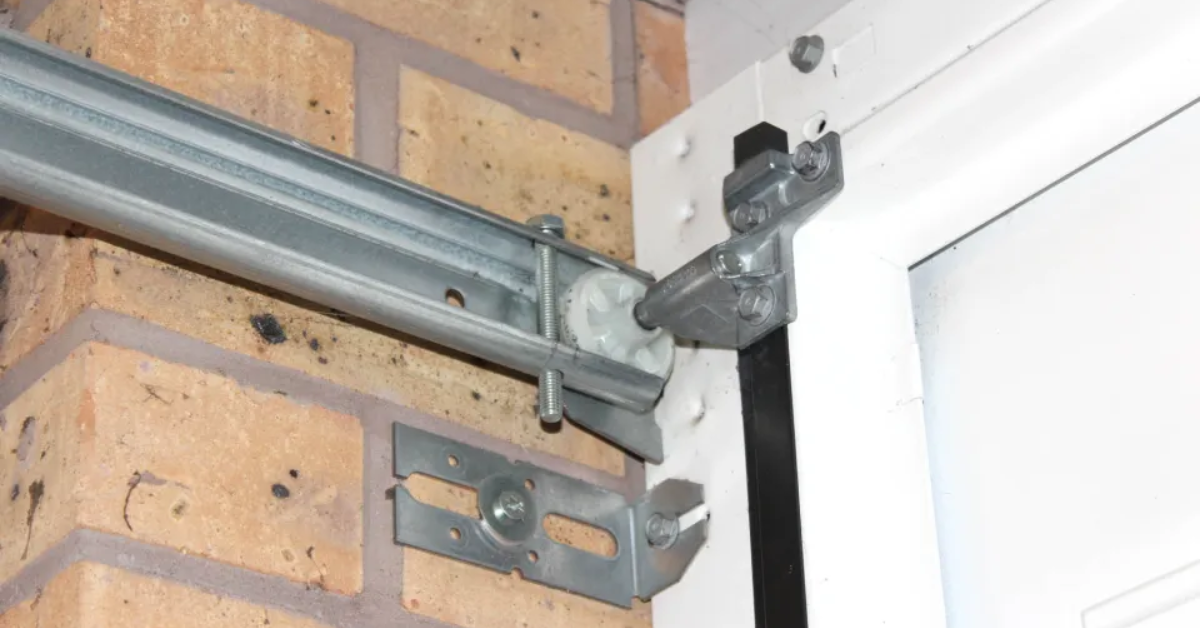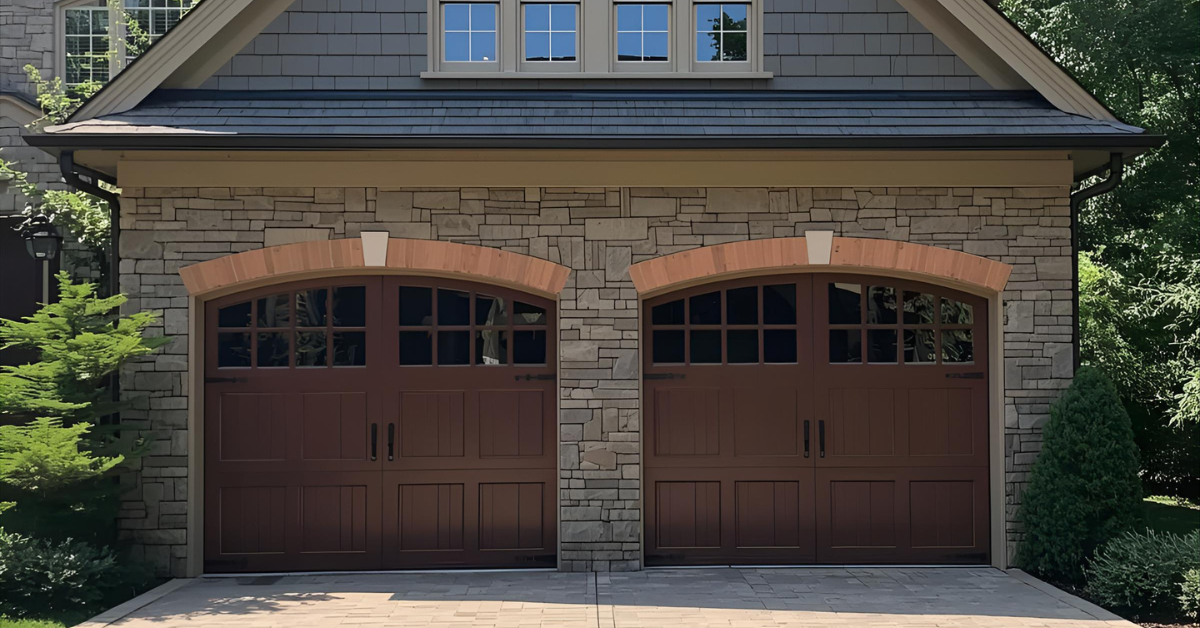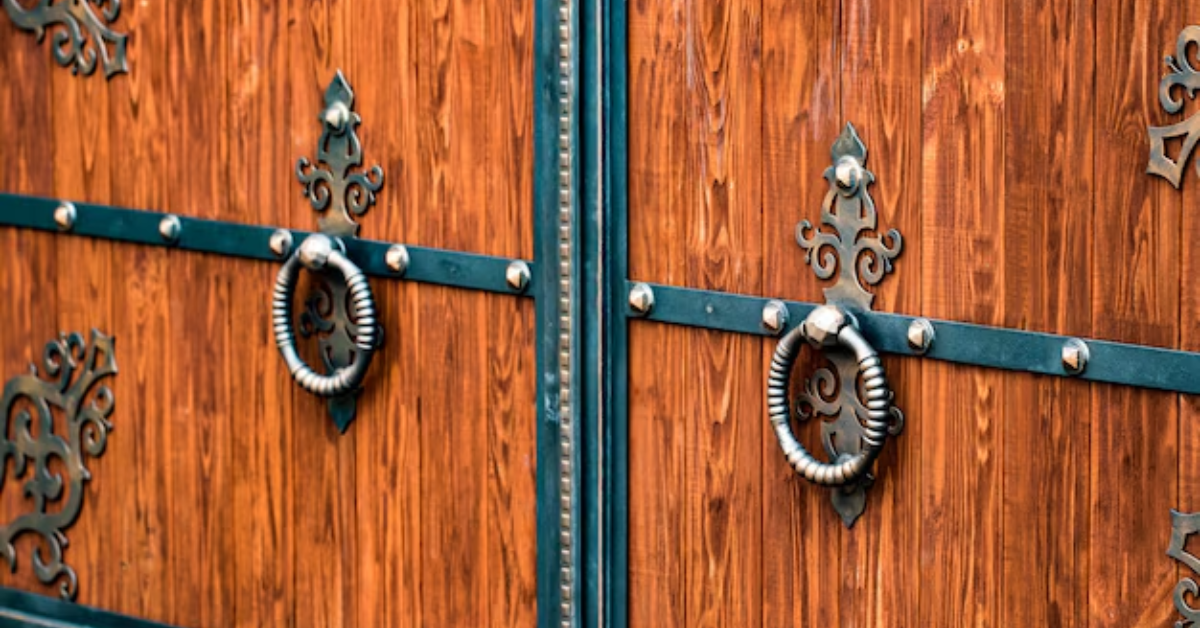Enhance Your Home Security with Garage Door Locks
Securing your home goes beyond just locking the front door; it involves safeguarding every point of entry, including the often-overlooked garage. An integral part of this defense system is the implementation of robust garage door locks. These locks play a pivotal role in enhancing home security by fortifying an area that's frequently susceptible to intrusions. Understanding the significance of securing garage doors and the role that specialized locks play in this endeavor is crucial for homeowners seeking comprehensive protection for their property and loved ones.
The garage is more than a storage space for vehicles; it's a gateway to your home. Unfortunately, it's also a
common target for intruders due to its vulnerable entry points and potential access to the main house. Securing your garage is essential in preventing unauthorized access not just to your vehicles and tools but also to the interior of your home. Unsecured garage doors can serve as an open invitation to burglars, compromising the safety of your belongings and family.
Role of Garage Door Locks in Home Security:
Garage door locks serve as the primary line of defense against unauthorized access. They act as a deterrent to intruders, impeding their attempts to breach your property. These locks come in various forms, from traditional deadbolts to advanced smart locking systems, offering a spectrum of security measures tailored to individual needs. Their presence not only reinforces the physical barrier but also provides peace of mind, knowing that your garage, and by extension, your home, is better protected against potential threats.
Enhancing home security through garage door locks is an essential component of a comprehensive safety strategy. Recognizing the significance of securing garage doors and comprehending the pivotal role that dedicated locks play can empower homeowners to make informed decisions in safeguarding their homes from potential risks and intrusions.
Understanding Garage Door Locks
Understanding the nuances of garage door locks is crucial in fortifying your home's security. These locks come in various types, each offering distinct features designed to bolster the defense of your garage against potential intrusions.
Deadbolt Locks:
Deadbolt locks are a popular choice for securing garage doors. Installed separately from the automatic opener, these locks are manually operated and often require a key to engage or disengage. They offer robust resistance against forced entry due to their sturdy construction and inability to be easily manipulated.
T-handle Locks:
T-handle locks are typically found on older garage doors. They feature a handle on the outside of the door that connects to a mechanism inside, securing the door in place when engaged. These locks are straightforward in design and function, requiring a twist of the handle to either lock or unlock the door.
Side-Mounted Bolts:
Side-mounted bolts are additional locking mechanisms installed on the sides of the garage door tracks. These bolts slide into holes in the vertical tracks, preventing the door from being lifted even if the automatic opener is bypassed. They provide an extra layer of security by securing the door in a closed position.
How Garage Door Locks Work:
Garage door locks function as barriers to unauthorized entry, working in conjunction with the door's closing mechanism. Deadbolt locks, when engaged, extend a solid bolt into the door frame or track, preventing the door from being opened manually or by force. T-handle locks operate by connecting the handle to the door's locking mechanism, securing it in place or releasing it with a simple turn. Side-mounted bolts reinforce the door's stability by anchoring it to the tracks, adding resistance against attempts to pry the door open.
Understanding how these locks function is essential for homeowners aiming to maximize their garage's security. Each type of lock operates uniquely, contributing to the overall defense of the garage against potential intrusions and ensuring peace of mind regarding the safety of your property.
Benefits of Using Garage Door Locks
Using garage door locks provides a multitude of benefits that go beyond the basic function of securing your garage. These locks serve as a crucial component in fortifying your home's overall security system.
Improved Security Measures:
Implementing garage door locks significantly enhances the security of your home. They act as an additional layer of defense, complementing existing security systems and mechanisms. By fortifying the access point that the garage represents, these locks create a formidable barrier against unauthorized entry, deterring potential intruders and increasing the overall protection of your property.
Deterrent to Burglars and Intruders:
Garages are often perceived as vulnerable entry points by burglars and intruders. However, the presence of robust garage door locks serves as a powerful deterrent. These locks signal to potential intruders that gaining access to your property won't be an easy task. The added effort and time required to bypass these locks discourage opportunistic criminals, reducing the likelihood of your home becoming a target for theft or intrusion.
Enhanced Protection for Valuables:
Many homeowners use their garage not just for storing vehicles but also for valuable belongings and tools. By utilizing garage door locks, you provide enhanced protection for these valuables. Safeguarding items stored in the garage is as crucial as securing those kept inside the main house. Garage door locks offer peace of mind, ensuring that your valuable possessions are better shielded against theft or unauthorized access.
The utilization of garage door locks transcends mere physical security; it instills a sense of confidence and peace, knowing that your home is well-protected against potential threats. These locks serve as a proactive measure, enhancing security measures, deterring intruders, and safeguarding your valuable possessions, ultimately contributing to a safer and more secure living environment for you and your family.
Installation and Types of Garage Door Locks
Installing garage door locks can be approached in two ways: do-it-yourself (DIY) or professional installation. DIY installation offers the advantage of cost savings and the flexibility to work on your own schedule. However, it requires a certain level of technical skill and understanding of the specific lock system. On the other hand, professional installation ensures expertise and precision in fitting the lock to your garage door, but it typically involves additional costs for labor. Deciding between DIY and professional installation depends on your comfort level with the installation process and the complexity of the lock system.
Selecting the appropriate lock for your garage door involves considering various factors such as the type of garage door you have, the level of security needed, and personal preferences. Deadbolt locks, T-handle locks, and side-mounted bolts are among the common options, each offering different levels of security and ease of use. Assessing your garage door's structure and understanding the locking mechanisms will help determine which type of lock suits your needs best.
Steps to Install Garage Door Locks:
Installing garage door locks typically involves the following steps:
Prepare the Area: Clean the area where the lock will be installed and ensure the door is in the closed position.
Select the Location: Determine the ideal placement for the lock based on the door's construction and manufacturer recommendations.
Mark Drilling Points: Mark the drilling points for the lock components on the door, following the lock's installation instructions.
Drill Holes: Use the appropriate tools to drill holes for the lock components, ensuring accuracy and alignment.
Install the Lock Components: Assemble and install the lock components according to the provided instructions, securing them firmly to the door.
Test the Lock: Test the functionality of the lock to ensure it operates smoothly and securely.
Following manufacturer guidelines and safety precautions is essential during the installation process to ensure the lock is fitted correctly and functions properly. Whether opting for DIY installation or seeking professional assistance, choosing the right lock and installing it correctly are pivotal in reinforcing the security of your garage door, contributing significantly to your home's overall safety.
Maintenance and Best Practices
Maintaining garage door locks is essential for ensuring their longevity and optimal functionality. Regular maintenance involves cleaning the locks and their components to prevent dirt and debris buildup, lubricating moving parts to prevent rust or corrosion, and inspecting for any signs of wear or damage. Performing these routine checks can significantly extend the lifespan of the locks and ensure they continue to operate smoothly.
To maintain the optimal functionality of garage door locks, consider these tips:
- Clean locks and their components regularly using a mild detergent and a soft cloth.
- Apply lubricant to moving parts such as bolts, hinges, and keyholes to prevent friction and ensure smooth operation.
- Test the locks periodically by engaging and disengaging them to ensure they operate without any issues.
- Keep keys and lock mechanisms protected from extreme weather conditions or direct exposure to moisture to prevent rust or damage.
Common Issues and Troubleshooting:
Some common issues with garage door locks and possible troubleshooting steps include:
- Try lubricating the keyhole with a graphite-based lubricant and use a spare key to check if the issue is with the key itself.
- Clean the lock thoroughly and apply lubricant to free up any stuck components.
- Tighten any loose screws or bolts and ensure the lock components are properly aligned.
- Clean the affected areas with a rust remover, apply lubricant, and consider replacing severely corroded parts if necessary.
Regular inspection and prompt resolution of any issues with garage door locks are crucial in preventing potential malfunctions and ensuring continued security for your home. By adhering to a maintenance routine, implementing best practices, and promptly addressing any issues that arise, homeowners can ensure that their garage door locks remain in top condition, contributing to a robust and reliable security system for their homes.
Additional Security Measures for Garage Doors
Security Cameras and Alarms
Supplementing garage door locks with security cameras and alarms provides an added layer of protection for your garage and home. Security cameras placed strategically around the garage area offer continuous surveillance, enabling you to monitor any suspicious activity in real-time. Alarms, whether standalone or integrated into a comprehensive home security system, serve as a deterrent to potential intruders. They trigger an alert in case of unauthorized access attempts, immediately notifying homeowners or security monitoring services, thus thwarting potential break-ins or thefts.
Reinforcing Garage Door Construction
Reinforcing the construction of your garage door itself is an effective way to enhance security. Upgrading to stronger and more durable materials for the door panels, frames, and tracks can significantly increase its resistance to forced entry. Also, installing security bars or braces on the inside of the garage door adds an extra layer of protection, preventing the door from being easily compromised by physical force.
Integrating Smart Security Systems
Integrating smart security systems into your garage offers advanced security features and remote monitoring capabilities. Smart garage door openers equipped with wireless connectivity enable homeowners to control and monitor their garage doors remotely using smartphones or other connected devices. These systems often come with features like real-time alerts, access logs, and the ability to grant temporary access to individuals, enhancing convenience and security.
By combining these additional security measures with robust garage door locks, homeowners can create a comprehensive security setup that not only secures the garage but also strengthens the overall protection of their homes. These measures work synergistically to deter intruders, provide real-time monitoring, and fortify the garage against potential security threats.
Conclusion
Garage door locks stand as sentinels, fortifying the often overlooked yet vulnerable gateway to your home. Strengthening your home security with these specialized locks goes beyond mere protection; it's about safeguarding your peace of mind and ensuring the safety of your loved ones and valuables. By recognizing the significance of securing garage doors and understanding the pivotal role garage door locks play in fortifying this entry point, homeowners can take proactive steps toward creating a robust security system. The synergy of garage door locks with additional security measures forms an impenetrable shield, offering not just physical defense but also a sense of confidence, knowing that your home is fortified against potential threats. Ultimately, investing in garage door locks is an investment in the safety and security of your home, creating a haven where you and your family can thrive with peace and assurance.




